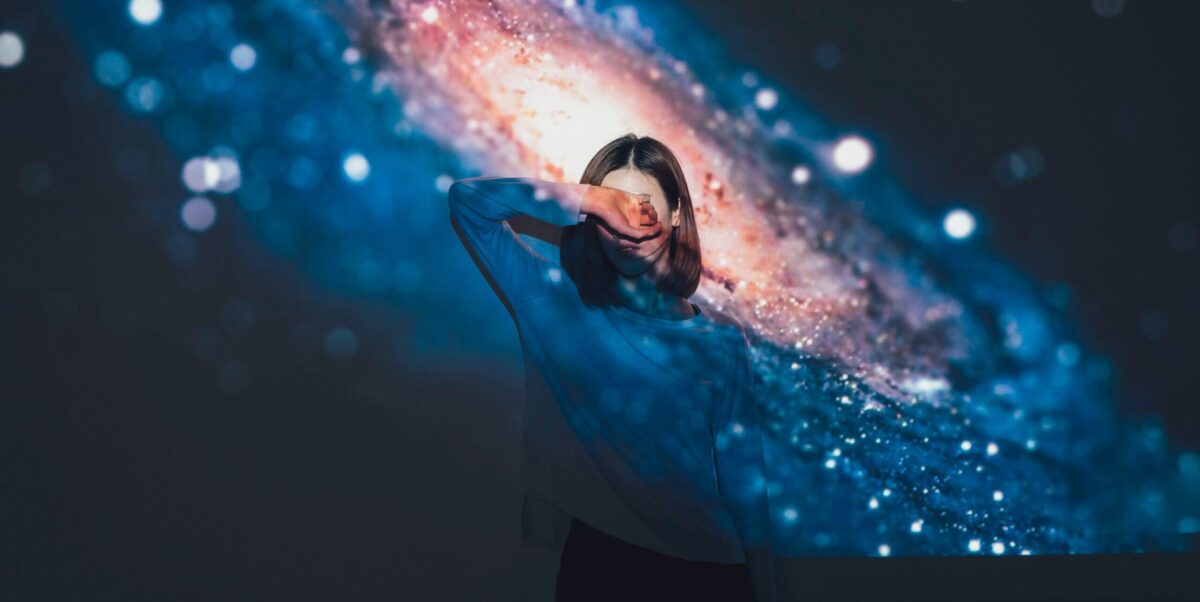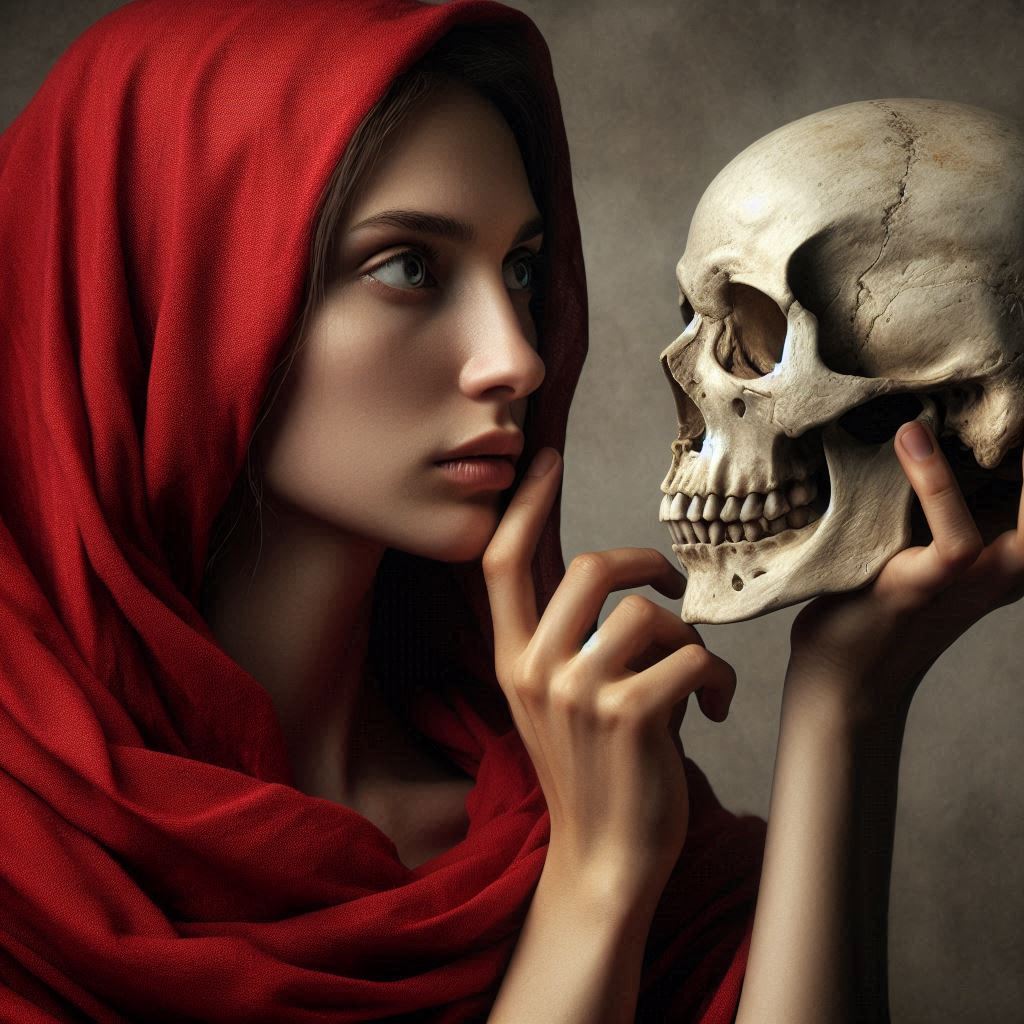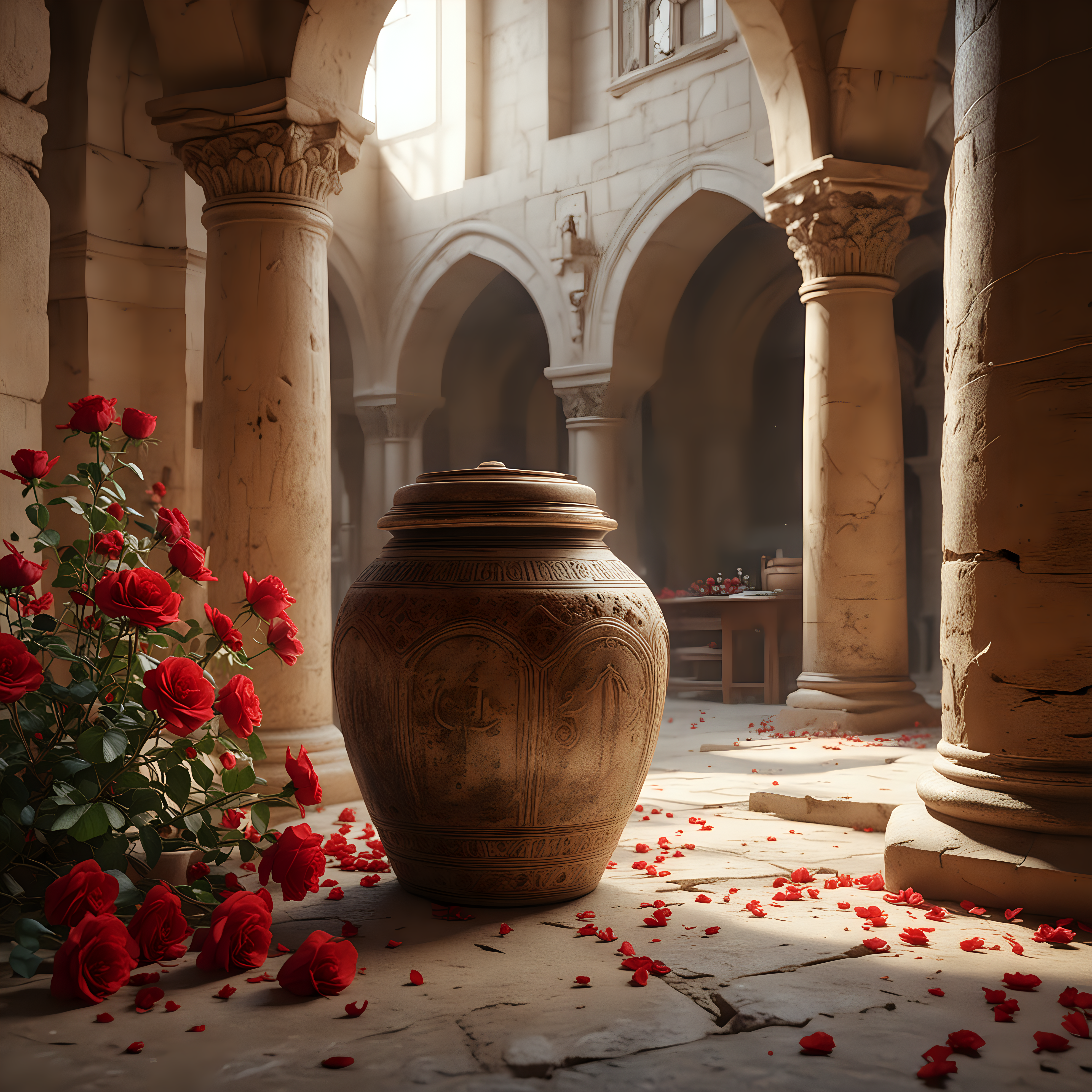What makes a mystic? How did Rumi or Thich Nhat Hanh or Jesus feel when they sat down to pray? How can we nurture that same deep intimacy with the Universe?
This is why the Holy Rebels Podcast exists—because mysticism is not a frequently discussed topic. It’s often described in an esoteric way that makes it seem like mystical intimacy is reserved for the spiritual elite.
The Number One Reason WHY mysticism is vague and hard to understand is because it happens in the deepest part of your soul, a part of yourself that is hidden from your own awareness. In this episode we discuss what it takes to form a mystical bond with God. With practice and the right set of skills, you can have what Teresa of Avila describes as, “a state in which the soul experiences an extraordinary peace and rest, accompanied by delight or pleasure in contemplating God as present.”
Transcript:
The Holy Rebels Podcast exists because mysticism is not a frequently discussed topic. It’s often described in an esoteric way that makes it seem like mystical intimacy is reserved for the spiritual elite. The reason mysticism is vague and hard to understand is because it happens in the deepest part of your soul, a part of yourself that is hidden from your own awareness.
Over the years through our pilgrimages to sacred sites around the world, conferences with bestselling authors, and the many many ceremonies in awesome places—from Stonehenge to Chartres Cathedral, I’ve been fortunate to meet hundreds of amazing souls all around the world who want the same basic thing—to live an inspired, meaningful life. Spirituality is important to them, but often they’ve had negative experiences with organised religion. These brave souls have carved their own spiritual path. I like to call them “holy rebels”.
If you are one of these people, one of these Holy Rebels, then you’re probably a highly intuitive person. You find it easy to empathise with others. You love to learn and you’re perpetually curious about the world around you. You love to understand the meaning and symbolism behind images and events. You notice synchronicities. You strive to see The Good, even when you’re hurting. Maybe you’ve become an expert in something, perhaps a creative passion or something in the healing arts. You’re strong and emotionally resourceful. And you’ve earned the wisdom that you have by overcoming challenges that life has thrown your way. You see challenge as a source of growth, and you think of your life as a pilgrimage.
If you can identify with the qualities I’ve just listed, then you, my friend, are a Holy Rebel. Welcome.
There’s a quote by the Jesuit mystic, Teilhard de Chardin, that aptly describes how Holy Rebels see themselves. It goes,
“We’re not human beings having a spiritual experience. We’re spiritual beings having a human experience.”
Teilhard de Chardin
…. Sounds about right!
Now today we find ourselves between two polarised worldviews about spirituality. In some parts of the world, especially in the secularised North America and Europe, being religious is seen as kind of embarrassing, even irrational. It’s not uncommon for people to think that religion is dangerous or opposed to modern ideals. Those who are religious must be sheltered, naive, or just plain uneducated. To the majority of people in the United States, Christianity is the religion to which other religions are measured. Christianity is the religion by which the word “religion” is defined, that is, the framework for how we understand what religion is supposed to be. In that sense, Christianity, and therefore religion, represents an old, outdated, irrational system, a silly belief in some man in the sky who watches over us. By contrast, eastern religions such as Hinduism, Buddhism, Sufism, are viewed in a very different light in the western world. This is partly the result of a shallow understanding of the Christian tradition, and a romanticising of the so-called exotic religions of the east.
The theological criticism aimed at Christianity for example (the man in the sky) is irrelevant altogether because that idea is based on pop culture, and not on theology. The intellectual tradition of Catholic theology and Christian mysticism is a broad, deep, and complex one. It would probably be highly interesting to those who are willing to look deeper, rather than through pop-culture-infused-misrepresentations.
Strangely enough, at the same time people love to call themselves spiritual. You’ll hear people say, I’m spiritual but not religious. So, on one hand, we reject religion, we have shame around anything that represents “belief”, and on the other hand, we yearn for a connection to the Divine.
What we really want—is a personal experience of God.
One of my greatest influences is a 16th century Carmelite mystic named John of the Cross. He describes this longing for mystical connection in this way. He says,
John of the Cross
“I no longer want just to hear about You, Beloved Lord, through messengers. I no longer want to hear doctrines about You, nor to have my emotions stirred by people speaking of You. I yearn for Your presence. These messengers simply frustrate and grieve me because they remind me of how distant I am from you. They reopen wounds in my heart and they seem to delay Your coming to me. From this day onwards, please send me no more messengers, no more doctrines. They can not satisfy my overwhelming desire for You. I want to give myself completely to You and I want You to give yourself completely to me. The love, which You show in glimpses, reveal to me fully. The Love, which you convey through messengers, speak it to me directly. I sometimes think you are mocking me by hiding yourself from me. Come to me, Beloved, come to me with the priceless jewel of Your love.”
This is why the Holy Rebels Podcast exists—because mysticism is not a frequently discussed topic. It’s often described in an esoteric way that makes it seem like mystical intimacy is reserved for the spiritual elite.
The Number One Reason WHY mysticism is vague and hard to understand is because it happens in the deepest part of your soul, a part of yourself that is hidden from your own awareness. But you can find these places within yourself. With practice and the right set of skills, you can have what Teresa of Avila describes as,
Teresa of Avila
“a state in which the soul experiences an extraordinary peace and rest, accompanied by delight or pleasure in contemplating God as present.”
Have you ever seen that Youtube video called “Cosmic Eye to Universe”? In the video, there’s a smiling boy standing in a green field. Using google imagery that’s stitched together, the camera zooms out to create a stunning visual impact of the massive scale of the universe. The camera zooms out to space, our solar system, our galaxy, and then beyond our galaxy. We travel 1 billion light-years away, past the green field, then the city, country, continent, plant, solar system, galaxy, further and further out, AND THEN the camera zooms back to the same boy standing on green grass. It’s cool, but the truly awe-inspiring part is when the camera zooms in. You see the boy on the grass, and the camera zooms into his pupil, and you journey into the inner universe—the body, the retina, a blood vessel, and into a white blood cell. What’s amazing is that you can zoom in as far as you can zoom out. You see the universe from minuscule elementary particles, and all the way out to the gigantic cosmic web.
I think of this video as an analogy of the inner landscape because there’s so much we don’t know about who we are. Humans are curious creatures. We want to experience the Source of our wonder, to understand and chase what makes us feel alive. It’s human nature, and it is the attitude of a mystic.
That’s WHY Holy Rebels Podcast exists. In every episode, we’re going on an adventure into your inner landscape. In the process, we’re going to learn about the history and development of western mysticism, metaphysics, theology, and we’ll hear the personal stories of our spiritual ancestors: like Julian of Norwich, Meister Eckhart, Mary Magdalene, Francis of Assisi, and many others.
There’s a brilliant 20th century American writer named Thomas Merton. He was a Trappist monk and he was intimately familiar with this experience. He wrote it down. Listen to this. Merton says,
Thomas Merton
“In Louisville, at the corner of Fourth and Walnut, in the centre of the shopping district, I was suddenly overwhelmed with the realisation that I loved all these people, that they were mine and I theirs, that we could not be alien to one another even though we were total strangers. It was like waking from a dream of separateness, of spurious self-isolation in a special world. This sense of liberation from an illusory difference was such a relief and such a joy to me that I almost laughed out loud. I have the immense joy of being human, a member of the human race, a race in which God Himself became incarnate. As if the sorrows and stupidities of the human condition could overwhelm me, now that I realise what we all are. And if only everybody could realise this! But it cannot be explained. There is no way of telling people that they are all walking around shining like the sun. Then it was as if I suddenly saw the secret beauty of their hearts, the depths of their hearts where neither sin nor desire nor self-knowledge can reach, the core of their reality, the person that each one is in God’s eyes. If only they could all see themselves as they really are. If only we could see each other that way all the time. There would be no more war, no more hatred, no more cruelty, no more greed. But this cannot be seen, only believed and ‘understood’ by a peculiar gift.“
Isn’t that beautiful? If we truly understood who we are and if we could see one another as brothers and sisters, there would be no war, no more hatred, no more cruelty, no more greed…. Because the vantage point of mysticism transforms your life. When we share our spiritual experiences with others, as Merton does here with us, we are breathing life into the hidden reality that is all the time influencing us: the way we feel, our purpose and values, our sense of belonging and community. It’s important to make visible the symbolic nature of existence. And when we talk about it, the spiritual nature of reality seems to reveal itself through conversations and synchronicities. This is the arena of life that gives us a sense of meaning and connection. For these reasons alone, mysticism is worth exploring.
And I haven’t even mentioned the fact that mysticism is one of the central sources of inspiration for innovative ideas across fields, from philosophy, art and literature to science, astronomy, and archeology. Mystical experiences have generated meaningful cultural change, precisely because of the obscurity of the Source of its inspiration. We can say that mysticism is a form of spiritual creativity. It transcends the boundaries of time and space by reaching out to a reality that can not be grasped by means of ordinary human cognition.
I am so excited to be having this conversation with you. In this first season of Holy Rebels Podcast, we’re going to explore the three traditional stages of mysticism: the purgative way, the illuminative way, and the unitive way. You’re going to discover the types of mystical practises that you relate to most—maybe you’re drawn to “nature mysticism” like St Francis, or “contemplative prayer”, like the Cloud of Unknowing. With guidance from the spiritual masters of the past, we are going to map the inner landscape.
My friend, I created this Podcast to share the valuable resource that I wish I had before studying theology and becoming a Sister of the Third Order of St Francis. Honestly, there’s so much misleading woo-woo out there. Having a proven roadmap of inner life that’s been created by thousands of mystics over thousands of years is so important because it will ground you and provide you with wisdom. The Holy Rebels Podcast will get you where you want to go, which is: to be more present with the things that matter to you and to grow into more of who you are so you can live the joyful, purposeful life that you deserve.
Subscribe to this podcast right now because in the next episode, we’re talking about mystical experiences: What is a mystical experience—And how do you know if you’ve had one?
My friend, spiritual companionship is a rare treasure, and so, I’m glad we’ve found each other. This is your life, make it count. I’ll see you next time on the Holy Rebels Podcast.
Mentioned in this episode
John of the Cross, The Spiritual Canticle of The Soul
Cosmic Eye to Universe Youtube Video
Thomas Merton, Conjectures of a Guilty Bystander
Paragraph
Paragraph



